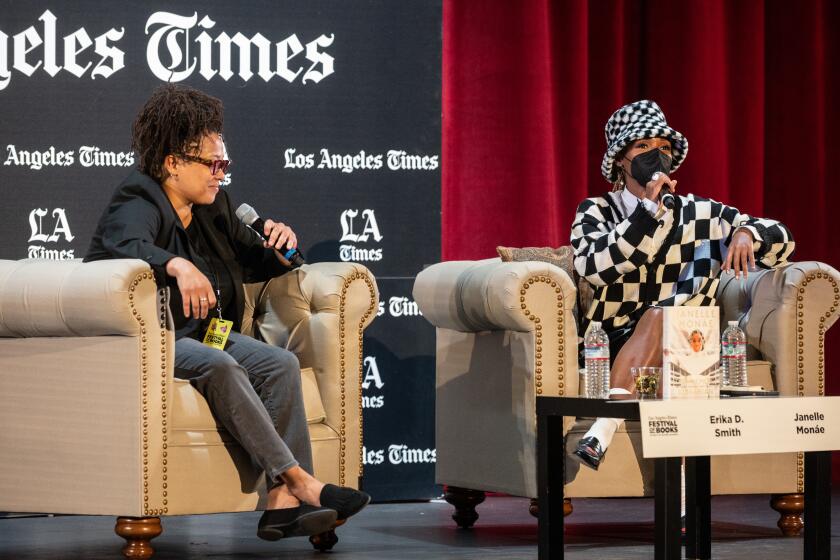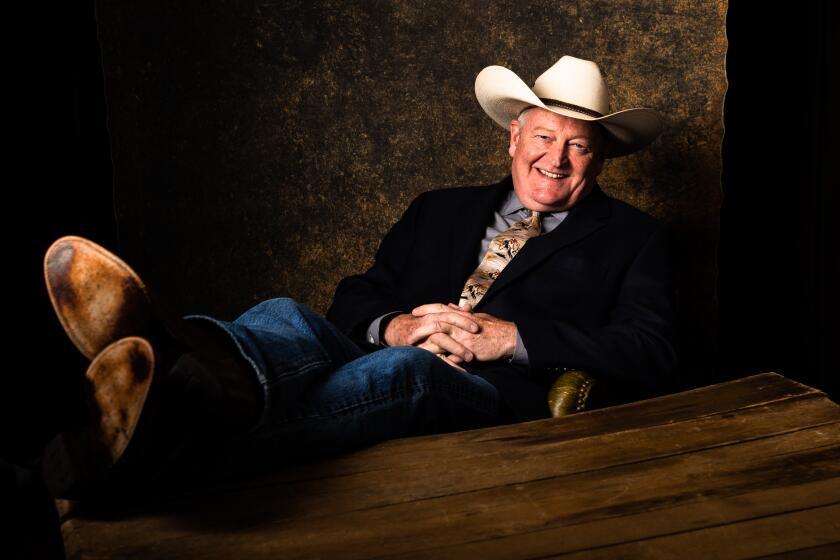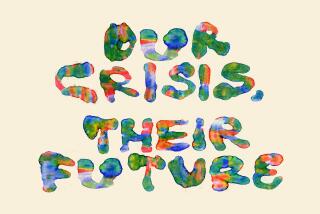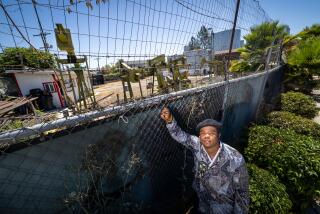Writing about climate change inspires hope for panelists at the Festival of Books
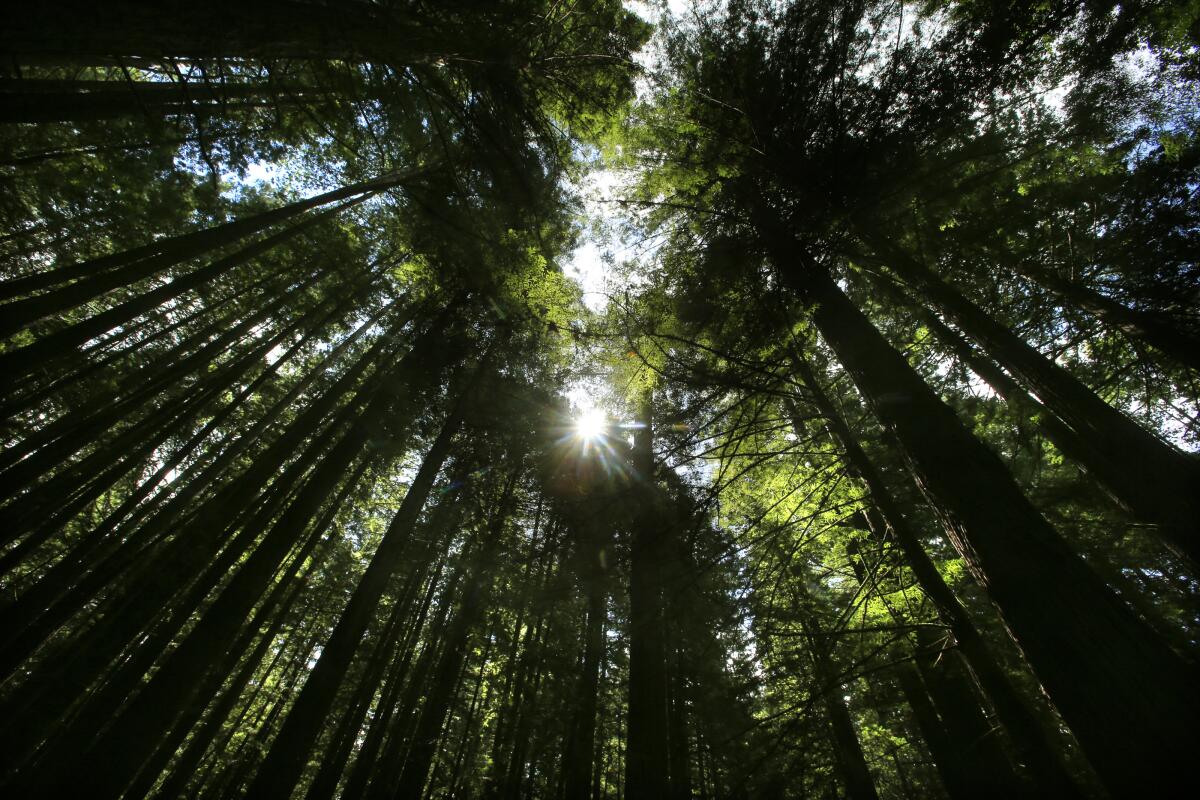
- Share via
Olivia Clare Friedman found her way in to writing about climate change while driving past a graveyard.
“I had this question: ‘What if the effects of climate change mean that we lose our physical memorials to the dead and what happens to our rituals of mourning and grief?’”
Friedman’s most recent novel, “Here Lies,” is set in the near future where environmental change makes it impossible to bury our dead.
Braided themes of grief and hope animated a lively and ultimately hopeful panel on climate fiction at the L.A. Times Festival of Books on Sunday. Friedman, Matt Bell, Maria Amparo Escandón and Ash Davidson joined moderator Edan Lepucki. One of Lepucki’s first questions — “How do you tell the story of climate change in the way that galvanizes readers to move out of despair or fatalism?” — introduced the theme of balancing the terror of global environmental catastrophe with a reader’s desire for some form of succor.
For Bell, in writing “Appleseed,” it was the research.
“Spending four years researching climate change felt like going to the doctor after you’ve been sick for a long time,” he said. “Getting the diagnosis is better than just being afraid. Understanding it helps me a lot with my own climate anxiety. I’m facing into which feels good, and learning that there are solutions. My three protagonists are people who are trying to make the world a better place.”
Panels, prizes and people — lots of them. Coverage of the L.A. Times’ first in-person Festival of Books since 2019 begins below.
Escandón focused her novel, “L.A. Weather,” on its daily effect on a family.
“The personal is universal,” she said.
While one of her characters is obsessed with watching the Weather Channel, Escandón wanted her to actually experience the weather. The novel follows the actual changes in L.A. weather in 2016 and how they affected the characters.
Her book looks at how the individuals in a family come together to make change.
“This climate anxiety that you feel comes out of not knowing how to proceed. I believe that some sort of antidote to climate anxiety is to have agency, to have the awareness to figure out what kinds of habits I can change.”
For Ash Davidson, writing “Damnation Spring” took her back to her birthplace, the California-Oregon border and the fight in 1977 over attempts to conserve remaining preserves of redwoods. Writing about a time when the runoff from herbicides poisoned those who lived there, Davidson was introduced to a different form of climate grief. Rather than stick to the divide between environmentalists and loggers, she makes one of her protagonists a logger and then writes from his point of view. She drew on his characterization by interviewing those who worked in the timber industry.
“Grief isn’t only about place,” she said. “It’s also about work, a type of grief that could be translated to a lot of industries and small towns across this country. There’s real questions about what happens to those workers, and I was interested in the particular grief of losing a profession that defines you and your identity.”
Photos of some of the participants who stopped by the Los Angeles Times’ photo studio at the L.A. Times Festival of Books.
Davidson found inspiration in recognizing that the giant redwoods have always found ways to adapt. Despite the loss of moisture drawn from fog, “the research reminds me of the magic and intelligence of the natural.”
“I think certain cultures recognize more than others,” she said. “Since the ‘70s, redwood trees have put on more mass because there’s more carbon dioxide available to them. Redwood trees are naturally resilient, and redwood have bark that helps resist insect infestation, and an old-growth redwood can have bark a foot thick, which will protect them from low- and medium-intensity fire.”
The panelists agreed that researching climate change made them feel better about the future. Being able to name the problem gave them power over it.
“I don’t normally tend toward hope, but I was thinking so much about rituals and what was happening to our public rituals of mourning and grief, which we were all going through differently during the pandemic,” Friedman said. “And that also spurred me to write toward hope.
“What happened in writing my book is as these friendships formed between these women, I was also very interested in the grand scale of love. Friendship and love happening amidst all of this. They’re powerless to do anything, but these bonds are forming.”
More to Read
Sign up for our Book Club newsletter
Get the latest news, events and more from the Los Angeles Times Book Club, and help us get L.A. reading and talking.
You may occasionally receive promotional content from the Los Angeles Times.
